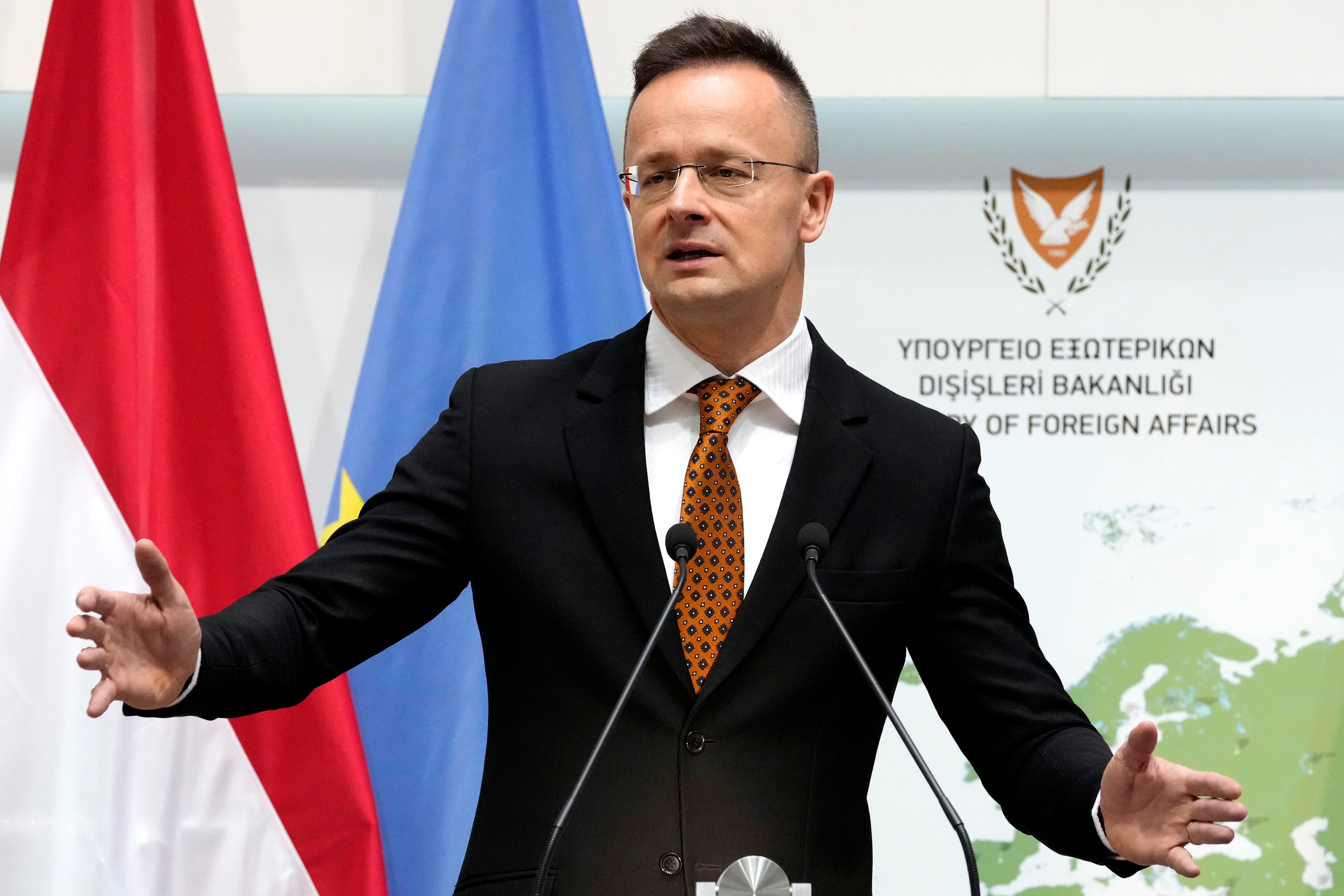Hungary's foreign minister visits Belarus despite EU sanctions, talks about expanding ties
Hungary’s top diplomat has visited Belarus for talks on expanding ties despite the European Union’s sanctions against the country

Your support helps us to tell the story
From reproductive rights to climate change to Big Tech, The Independent is on the ground when the story is developing. Whether it's investigating the financials of Elon Musk's pro-Trump PAC or producing our latest documentary, 'The A Word', which shines a light on the American women fighting for reproductive rights, we know how important it is to parse out the facts from the messaging.
At such a critical moment in US history, we need reporters on the ground. Your donation allows us to keep sending journalists to speak to both sides of the story.
The Independent is trusted by Americans across the entire political spectrum. And unlike many other quality news outlets, we choose not to lock Americans out of our reporting and analysis with paywalls. We believe quality journalism should be available to everyone, paid for by those who can afford it.
Your support makes all the difference.Hungary's top diplomat visited Belarus on Wednesday for talks on expanding ties despite the European Union's sanctions against the country.
Hungarian Foreign Minister Péter Szijjártó declared that "our position is clear: the fewer sanctions, the more cooperation!”
The EU has slapped an array of sweeping sanctions on Belarus for the repression, which followed mass protests fueled by the 2020 presidential election that was widely seen by the opposition and the West as rigged. Belarus' isolation further deepened after authoritarian President Alexander Lukashenko allowed Russian troops to use his country's territory to launch a full-scale invasion of Ukraine on Feb. 24, 2022.
While saying that “sanctions don’t work,” Szijjártó noted, however, that Hungary was "increasing economic cooperation with Belarus in areas not affected by sanctions.”
“We will provide any support to develop cooperation," he said. “We talk about this openly, we don’t hide anything.”
Belarusian and Hungarian officials signed an agreement on cooperation in nuclear energy that envisages training personnel and handling radioactive waste.
“Of great importance is the agreement signed here today on nuclear energy cooperation, which allows us to use the experience Belarus gained here while constructing reactors with a similar technology,” Szijjártó said after the talks.
Hungary is working with Russia on adding a new reactor to its Paks nuclear facility, which is expected to go online by the end of the decade. Belarus also has a Russia-built nuclear power plant.
Belarusian Foreign Minister Sergei Aleinik voiced hope that Hungary taking over the EU's rotating presidency in July would help encourage “healthy trends” in Europe.
“People have grown tired of confrontation, pressure and escalation,” Aleinik said.
Szijjártó previously made a trip to Belarus in February 2023, becoming the first top official from an EU country to visit Minsk after the West slapped it with sweeping sanctions following the August 2020 presidential election.
The vote, which the opposition and the West say was rigged, triggered months of major protests to which Lukashenko's government responded with a sweeping crackdown. More than 35,000 people were arrested and thousands beaten by police.
Belarus’ leading human rights group Viasna counts about 1,400 political prisoners in the country, including the group’s founder, Nobel Peace Prize laureate Ales Bialiatski.
Belarusian opposition leader Sviatlana Tsikhanouskaya, who challenged Lukashenko in the 2020 election and was forced to leave the country after the vote, harshly criticized Szijjártó for visiting Belarus despite the EU sanctions.
“Such visits are absolutely unacceptable and immoral,” she told The Associated Press.
Tsikhanouskaya suggested that instead of “pretending to do business as usual,” Szijjártó should have visited Bialiatski, who has been held incommunicado.